Gettysburg's Welty House tells a Civil War story that you can touch, stay in as a B&B
Trapped during the Battle of Gettysburg 159 years ago, the Welty House at 452 Baltimore St. tells a story about living through the American Civil War. You can experience the home for yourself during a stay at the Brickhouse Inn Bed and Breakfast.
Pockmarks with radial lines, still crisp, are deep in the 19th century brick face of the home, shattered when soldiers shot toward a long-lost field and fire was returned. Steep steps beneath a wooden bulkhead basement door are as they were when families ran to safety.
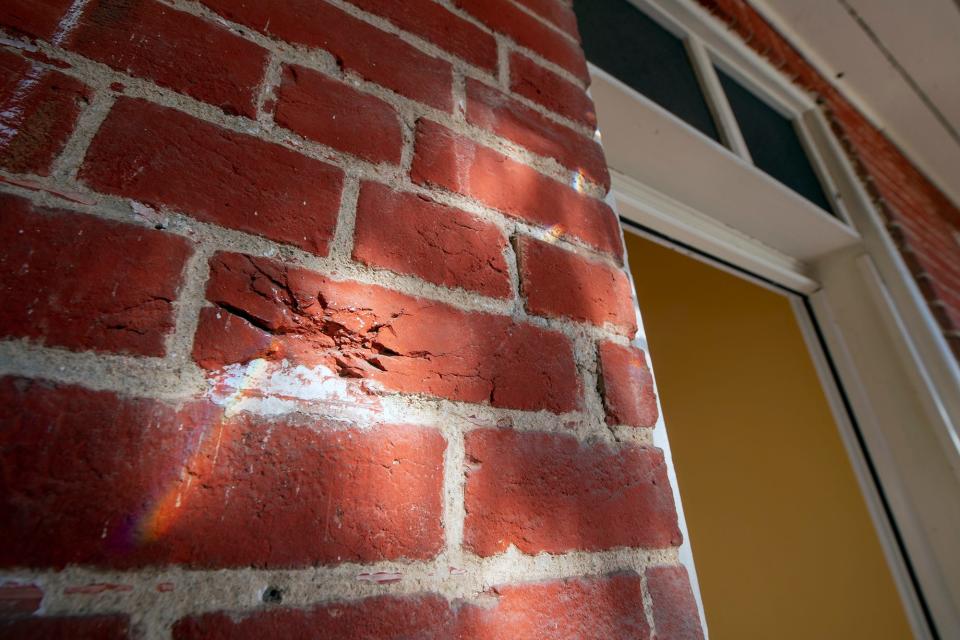
The back portion of the current house, built in the 1830s, would experience soldiers shooting from the second-floor windows, and its residents huddled in the stone basement for days during a turning point in a Civil War that exploded after decades of national political controversy over slavery.
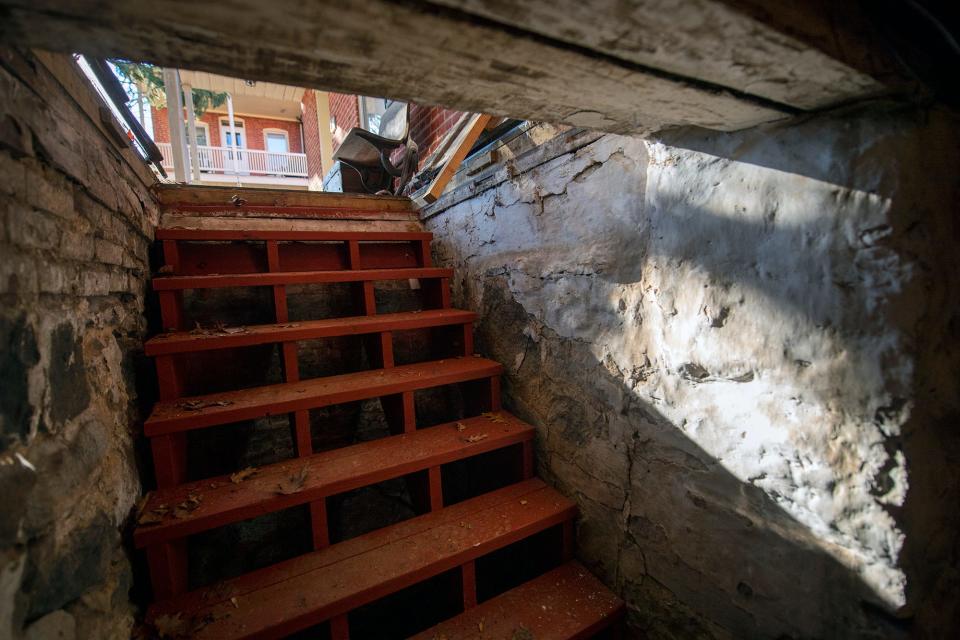
The inn is made up of two structures. The Welty House had the Baltimore Street facade updated and expanded after the war. The Victorian House was built in 1898.
At the time of the battle, the southern side of the Welty house faced a field. John Rupp lived across the street from the Welty family. A letter dated July 19, 1863 from Rupp to his sister Anne described the day the war came to Baltimore Street:
“Our house was under fire of boath (sic) armies from Thursday morning until Saturday morning. An (sic) I hardly know whare (sic) to begin to tell you about our trials… We took our children and went over to Mr. Welty’s cellar… The Rebs had my Tannery in their possession for four days… firing on our pickets up at Welty’s fence… The Rebs occupied the whole town… Our men (held the ground on), that part that lies between our house and (south to) the Cemetery…”
Inn manager Melanie Driscoll, who has worked in the houses for over 20 years, described how “it was a farmhouse during the battle and being a farmhouse this would have been all cleared land and if you look south of that house they would have had a straight line of sight to Cemetery Ridge, so Confederates went up to the second floor windows… to drive Union troops off of Cemetery Ridge.”
More:Proudly making their own history, 3 siblings run historic 'dream' Gettysburg B&B
More:Devil's Den in Gettysburg reopens with better accessibility
More:All roads lead to York at Gettysburg’s Seminary Ridge Museum
Guest rooms with projectile-made pockmarks on the outside brick walls open to the same balcony that was there during the Civil War. Today, this infantry perch overlooks a landscaped backyard surrounded by the Victorian House and garages at the rear of the property.
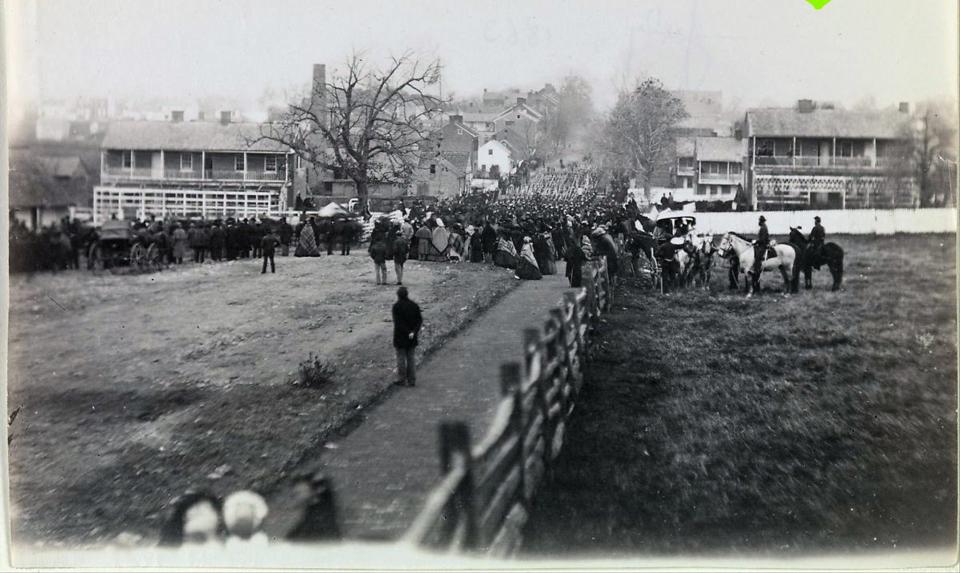
A picture hanging in the Victorian House shows a procession with Abraham Lincoln moving along Baltimore Street toward the cemetery past the Welty House and the empty field where fighting took place in November of 1863 on his way to deliver the Gettysburg Address.
When Driscoll was asked about any supernatural activity in the houses, she relayed stories of footsteps, the sounds of furniture moving, occupants hearing their names and a plumber who would reach for tools and had them moved from where he placed them while adding bathrooms to the Welty House guest rooms.
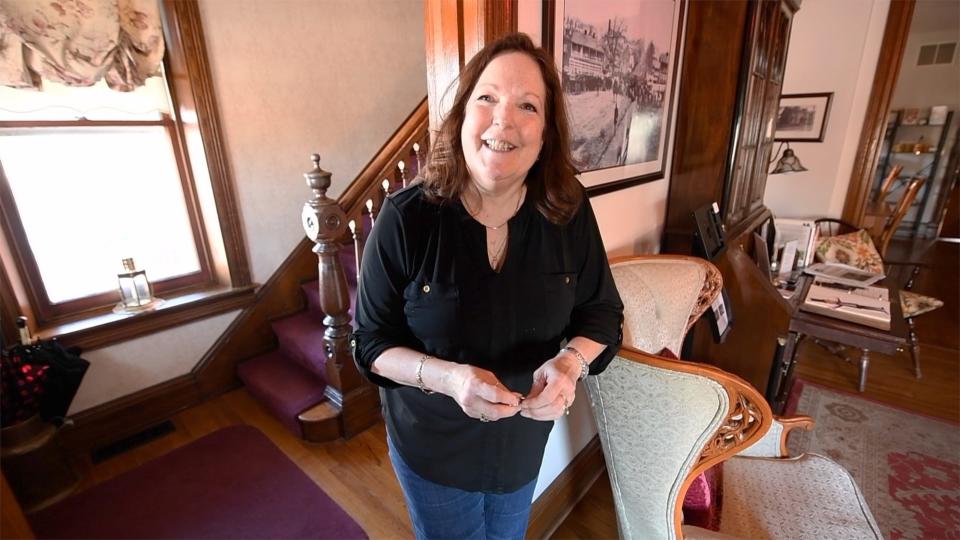
“I haven’t experienced anything in several years,” she says adding, “It all felt light-hearted, like it was getting your attention, nothing ever felt cruel or like it was intended to frighten you or harm you.”
“They are just two old gorgeous ladies and I love them dearly and I enjoy sharing them with people,” she said.
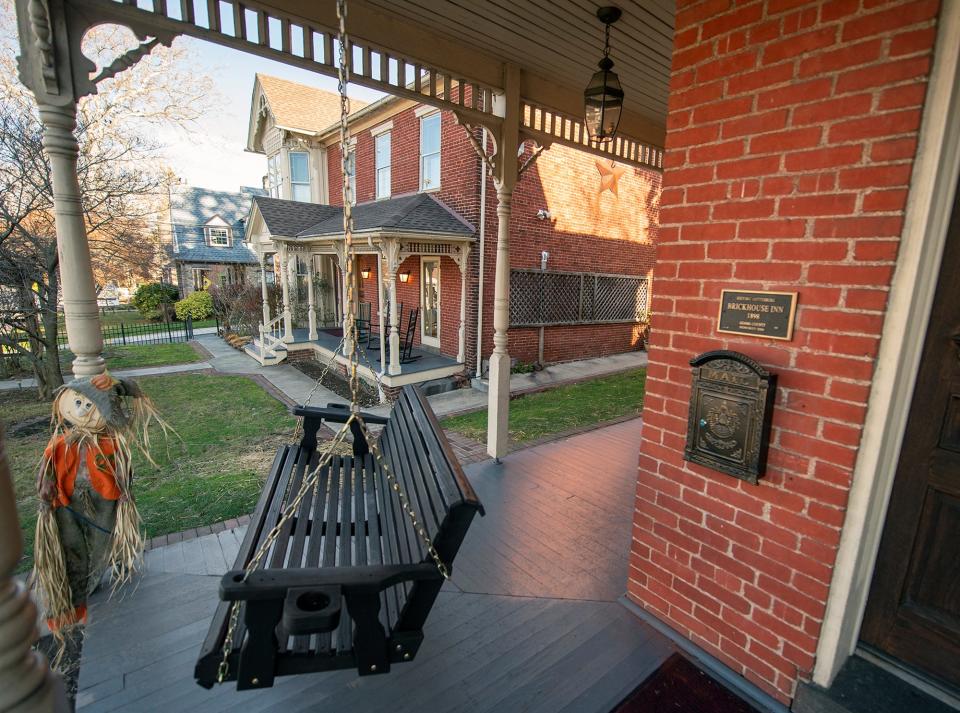
The two houses can sleep 34 people in their multiple guest rooms. Much of the interior trim and stained glass is from the late 19th century renovation. There are two dining areas for guests in the Victorian House. The Welty house is entirely made up of guest rooms, one of which has a private entrance from the original portion of the house.
"Most places have stories that are quite incredible, but that aren't told in the mainstream visitor experience," said owner Lance Zaal, who also also owns The Historic Lizzie Borden House. Zaal organizes his business as an "experience company" also offering numerous tours like usghostadventures.com and the development of the Junket app that provides self-guided tours using a smartphone app.
Much has changed in Gettysburg since the battle. The Welty House expanded from a simple farmhouse caught in a war zone into a Victorian home that is now part of a hospitality industry that attracts visitors from around the world to understand what happened to a country when it was split by Civil War.
The Brickhouse Inn Bed and Breakfast offers a rare opportunity to spend the night in a Civil War survivor that found itself a tool of the battle while still providing safety for the people who lived there.
To learn more about the Welty house and the BrickHouse Inn and Bed and Breakfast visit their website at brickhouseinn.com.
I have captured life through the lens since 1983, and am currently a visual journalist with the USA Today Network. You can reach me at pkuehnel@ydr.com.
This article originally appeared on York Daily Record: Gettysburg's Welty House tells a Civil War story that you can touch

